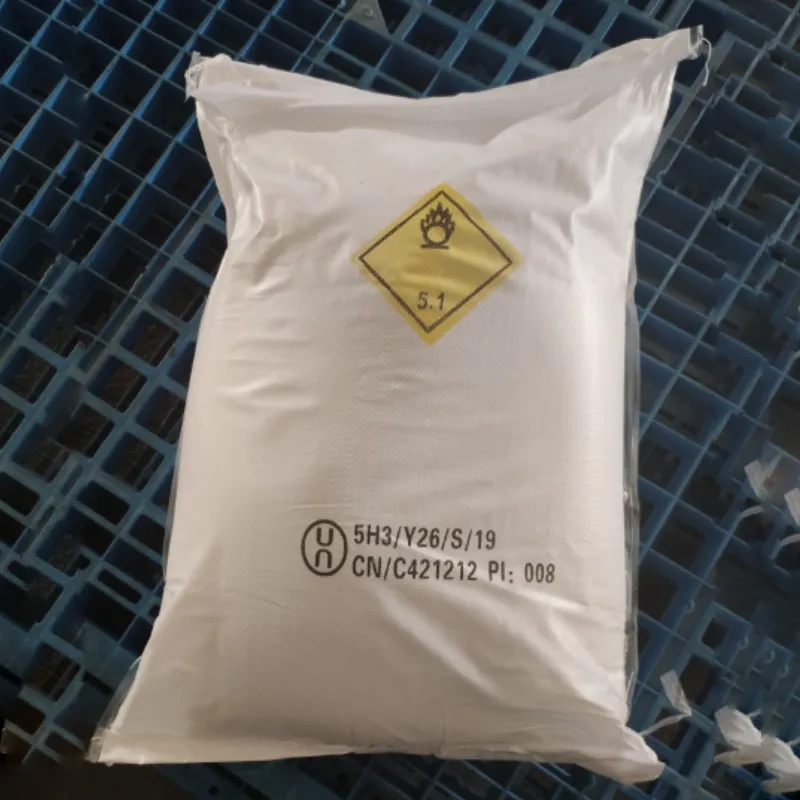
Understanding TCCA Chlorine Uses, Benefits, and Safety Measures for Effective Water Treatment
Understanding TCCA Chlorine An Essential Component for Water Treatment
Trichloroisocyanuric acid (TCCA) is a widely used chlorine compound in the water treatment industry. It serves as a powerful disinfectant and algaecide, making it ideal for various applications, including swimming pools, drinking water, and industrial water systems. The effectiveness of TCCA, along with its stability and ease of use, has made it a preferred choice for maintaining water quality.
One of the main benefits of TCCA is its high chlorine content, which typically ranges between 90-96%. This concentrated chlorine source not only makes it effective in killing harmful microorganisms but also helps in controlling algae growth in aquatic systems. The rapid dissolution of TCCA in water results in the release of hypochlorous acid (HOCl), the active form of chlorine that effectively disinfects and sanitizes.
Understanding TCCA Chlorine An Essential Component for Water Treatment
Moreover, TCCA is advantageous for its stability. Unlike liquid chlorine, which can degrade over time and may require more frequent handling and storage precautions, TCCA can be stored safely and has a long shelf life when kept properly. This characteristic makes it not only a practical option for swimming pool operators but also for municipalities and industries that need reliable disinfection methods.
tcca chlorine

In addition to swimming pools, TCCA is used in drinking water treatment. Contaminated water poses significant health risks, and effective disinfection is crucial in ensuring safe drinking water. TCCA’s ability to provide residual chlorine means that it continues to work even after initial application, providing an ongoing defense against microbial regrowth in water distribution systems. Many water treatment facilities utilize TCCA, especially in regions where water quality can fluctuate, ensuring consistent compliance with public health standards.
TCCA is also environmentally friendly compared to some traditional chlorine compounds. When used according to guidelines, it breaks down into harmless by-products. This characteristic is particularly important in ecological conservation efforts, as certain chlorine products can harm aquatic life if not managed properly.
Despite its many benefits, it is essential to handle TCCA with care. It is a powerful oxidizing agent, and improper handling can lead to hazardous reactions. Users should always follow safety guidelines, including wearing appropriate protective gear and ensuring proper storage away from incompatible materials. Training and awareness among users are critical for minimizing risks associated with chlorine compounds.
Furthermore, while TCCA is effective, it is essential to monitor chlorine levels regularly. Over-chlorination can lead to problems such as skin irritation for swimmers and unpleasant chlorine odors. Pool operators and water treatment plant staff must balance the chlorine levels to ensure maximum efficacy while prioritizing health and safety.
In conclusion, TCCA chlorine presents an effective, stable, and environmentally friendly solution for water treatment. Its high chlorine concentration and ability to prevent microbial growth make it indispensable in applications ranging from swimming pools to municipal water supply systems. However, like any chemical, responsible use and adherence to safety guidelines are paramount to harness its benefits fully. With proper management and monitoring, TCCA can play a crucial role in safeguarding public health and maintaining water quality. As we continue to advance in water treatment technologies, TCCA remains a reliable cornerstone in our approach to safe, clean water for all.
-
Pure Sodium Dichloroisocyanurate Dihydrate | Powerful DisinfectantNewsAug.29,2025
-
Industrial Chemicals: Quality & Purity for Every IndustryNewsAug.28,2025
-
Nitrile Rubber Honoring Strict Production StandardsNewsAug.22,2025
-
Aspartame Ingredients Honoring Food Safety ValuesNewsAug.22,2025
-
Fertilizer for Balanced Plant NutritionNewsAug.22,2025
-
Cyanide Gold Processing with High Purity AdditivesNewsAug.22,2025
-
Formic Acid in Textile Dyeing ApplicationsNewsAug.22,2025
Hebei Tenger Chemical Technology Co., Ltd. focuses on the chemical industry and is committed to the export service of chemical raw materials.
-

view more DiethanolisopropanolamineIn the ever-growing field of chemical solutions, diethanolisopropanolamine (DEIPA) stands out as a versatile and important compound. Due to its unique chemical structure and properties, DEIPA is of interest to various industries including construction, personal care, and agriculture. -

view more TriisopropanolamineTriisopropanolamine (TIPA) alkanol amine substance, is a kind of alcohol amine compound with amino and alcohol hydroxyl, and because of its molecules contains both amino and hydroxyl. -

view more Tetramethyl Thiuram DisulfideTetramethyl thiuram disulfide, also known as TMTD, is a white to light-yellow powder with a distinct sulfur-like odor. It is soluble in organic solvents such as benzene, acetone, and ethyl acetate, making it highly versatile for use in different formulations. TMTD is known for its excellent vulcanization acceleration properties, which makes it a key ingredient in the production of rubber products. Additionally, it acts as an effective fungicide and bactericide, making it valuable in agricultural applications. Its high purity and stability ensure consistent performance, making it a preferred choice for manufacturers across various industries.





